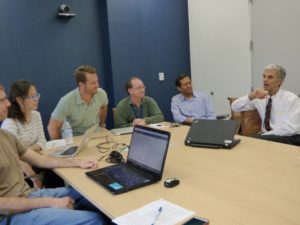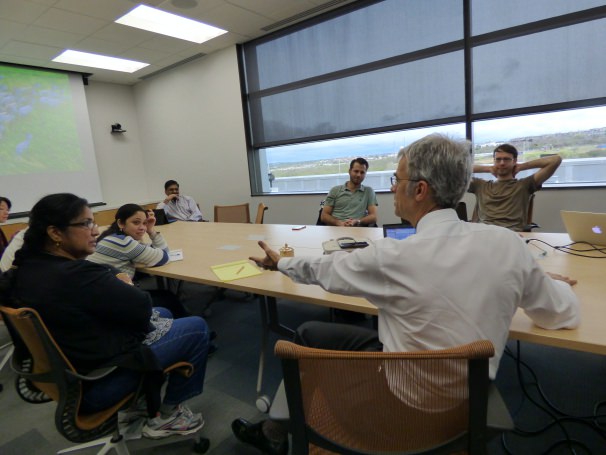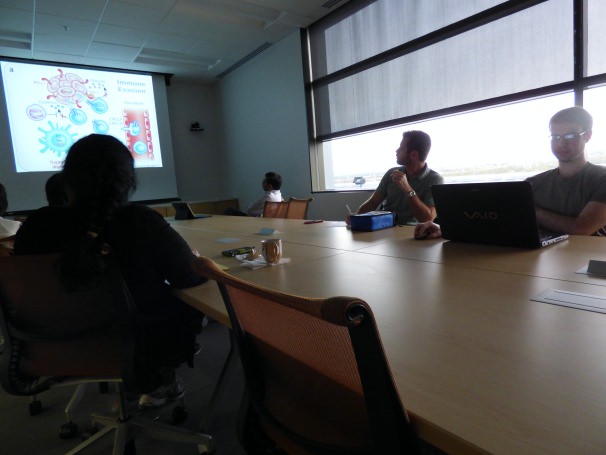Journal Club: Thinking Critically About Data
 “A journal club is an opportunity for students to get together and essentially critique journal articles that are out in the literature,” explained Anna Mancha, a graduate student in the Cancer Biology program who attends the Cancer Biology Journal Club.
“A journal club is an opportunity for students to get together and essentially critique journal articles that are out in the literature,” explained Anna Mancha, a graduate student in the Cancer Biology program who attends the Cancer Biology Journal Club.
Mancha explained that journal clubs are a great way for
graduate students to learn critical skills and keep up to date with current literature in their field.
“It’s a really important skill for scientists to know how to critique other scientific articles,” she said. “If you can identify flaws in other people’s work or determine other experiments you would have done to fortify their data then that makes you a little stronger as a scientist because
in the future when you plan your own experiments, you’ll be able to cover all the different angles.”
Dr. Tyler Curiel, a professor in the School of Medicine, who supervises the Tumor Immunology Journal Club, explained that journal clubs are important for students because it helps ensure that students are learning to think critically about data.

“I make people read the literature and then describe in
great detail what other people are doing and then relate this to what they are doing,” Dr. Curiel said. “This keeps everyone on top of their game.”
“We have journal club weekly, and the responsibility for presenting an article rotates among students and faculty,” he said. “We each, myself included, present three or four papers per year in our journal club.”
Mancha believes that her journal club has helped her learn how to plan effectively and get information across in a way that other people can understand.
“A really important measurement of a good scientist is how well they can participate in the scientific community, so even if you go into a postdoc or into industry or even academia, there are all these settings
where you will have to constructively criticize your colleagues in a way that is both respectful and helpful,” Anna said. “I think journal club sort of prepares you for these community circles in whichever avenue you choose to
take.”
Students suggest papers they would like to present at journal club and then present them in front of their peers.

“It’s a really great opportunity for you to look at science from other institutions,” said Justin Drerup, a graduate student in the M.D./Ph.D. program who attends the Tumor Immunology Journal Club. “It allows you to see what other people are doing, and if you like what they are doing then you can try to incorporate some of their techniques into your own work.”
Mancha explained that one of the aspects that she really enjoys about UT Health Science Center is that you do not have to be a member of
a journal club to attend.
“There’s all different kinds of journal clubs,” she said. It’s one of the benefits of being at a Health Science Center. There’s anything that you may be interested in whether it’s personal or academic.”
She explained that her friend goes to a journal club relating to research on obesity effects on the placenta
environment. Mancha explained that she dropped in on one of the journal club sessions to learn more.
“The papers that their journal club discusses are very relevant, especially if you are a mom,” Mancha said. “I spent an hour listening to a topic that I may have never known about unless that journal club existed.”
